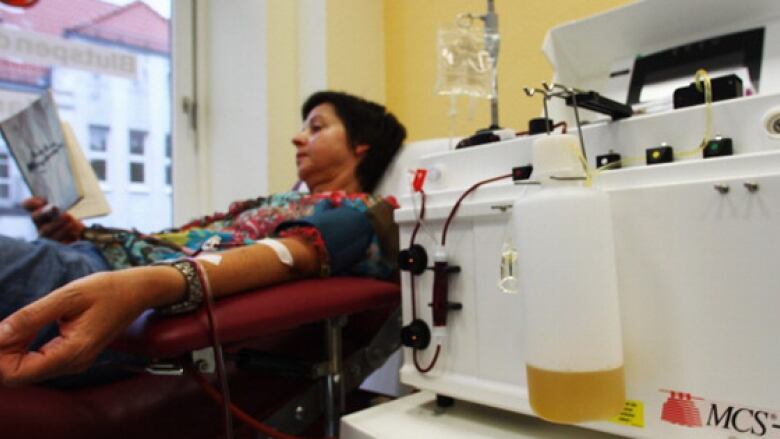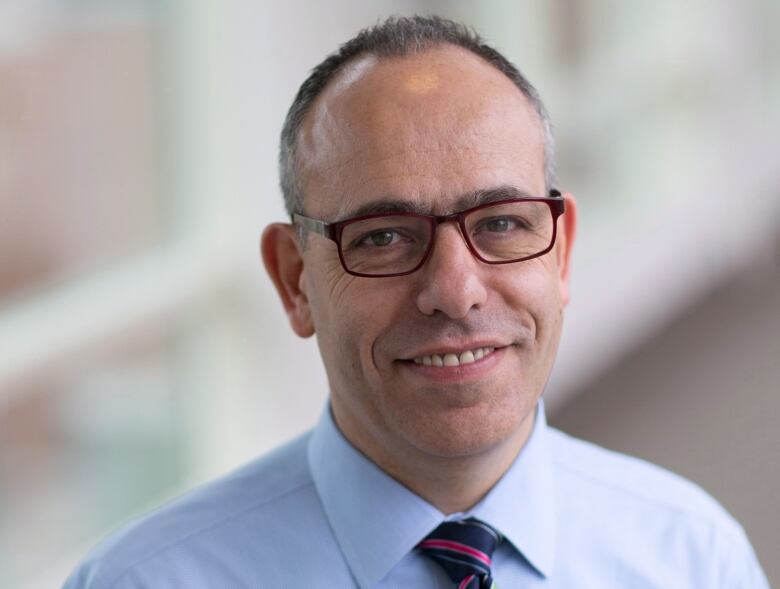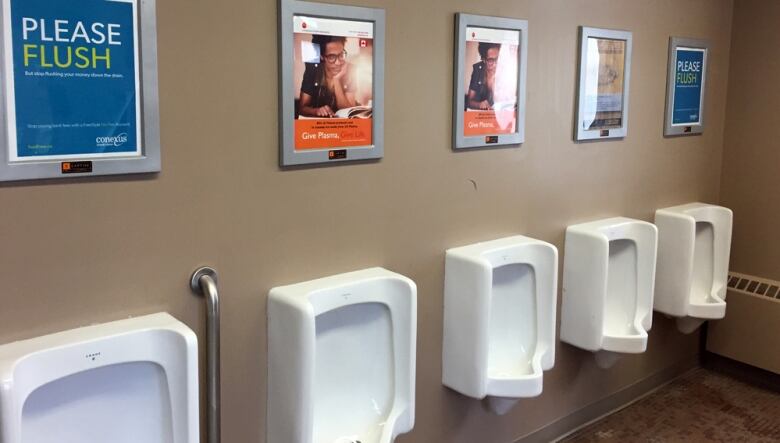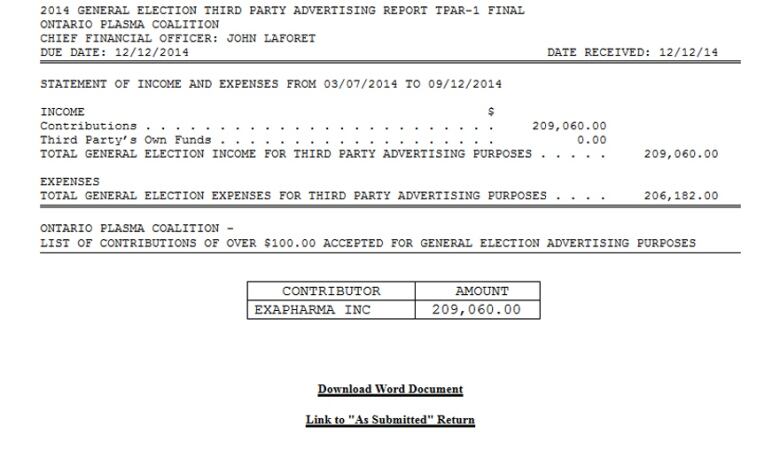Canadian Blood Services won't rule out paying plasma donors
National blood agency weighing options after Sask. operation starts compensating for donations

Canadian Blood Services, the agency that oversees the national supply of blood and blood products, says it wants to collect more plasma from Canadians, and CEO Graham Sher won't rule out the contentious possibility of paying donors.
Although Sher said hewould prefer to expand plasma collection using voluntary donors, he said it's not clear whether that would generate enough volume.
"So we are looking at our options, and I will repeat again our preferred option is not to pay donors. But can we achieve that economy of scale in growth?"
Those considerationscomeamidrenewed controversy over the ethics of paying Canadians for blood products, which runs contrary to the recommendations of the Krever Commission, the nationalinquiry that investigated 1980s tainted blood scandal.
The idea infuriates Michael Decter, who had a front row seat during the tainted blood scandal first as deputy health minister of Ontario, and later as an adviser to the Krever Commission.
"I would do everything within my power to change that decision," he said. "I believe that decision wouldn't stand in the public's opinion."
1st paid clinic opens in Prairies
The drive to collect more plasma is a change in direction for Canadian Blood Services, which hadclosed plasma collection facilities over the last few years. The agencyanticipates an increasingdemand for plasma productsto treat a variety of immune and blood disorders, and the decision to try to collect it domesticallyreflectsthe growing value of the raw material.

The debate over paid plasma has flared up again because Canada's first paid plasma clinic has opened in Saskatoon, offering donors$25 gift couponsin exchange for their blood products.
The clinic, run by a company called Canadian Plasma Resources,has placed ads in campus bathrooms at the University of Saskatchewan urging students to donateand telling them that qualified donors will be compensated.
The appeal to students, and the proximity of the clinic to services aimed at low income earners, is raising concerns.
"There are ethical issues in terms of who ends up selling their plasma and what that does to their health and well-being generally," said Ryan Meili, a Saskatoon family doctor.
Company used front group during Ontario election
Canadian Plasma Resources tried and failed to open similar clinics in Toronto in 2014. The company even set up a front group called Ontario Plasma Coalition to try to influence the 2014 provincial election.
Records filed with Elections Ontario show that the company spent more than $200,000 on third-party advertising to promote private plasma collection, making them one of the top 10biggest spenders on third-party advertising during theelection.

"Ontario Plasma Coalition was only in existence to promote an Ontario plasma industry during the Ontario 2014 election," company CEO Barzin Bahardoust said. "It was unsuccessful and it is no longer operative."
After Ontario passed legislation to banpaying plasma donors, the company packed up its equipment and moved to Saskatchewan, where the provincial governmentpromised it would not pass a similar law.
To help make its case in other provinces, Canadian Plasma Resources has hired lobbyist Jim Pimblett, who was an adviser to former prime minster Paul Martinand onetimeLiberal leader Michael Ignatieff.
So far, Pimblett has held meetings to lobby for the private clinic with health ministers and government officials in Alberta, Manitoba, Nova Scotia and British Columbia.
In B.C., the Health Minister Terry Lake was so persuaded by the company's arguments that he wrote an opinion piece in a Vancouver newspaper earlier this monthin favour of paying for plasma.

"Our goal is to create 10 centres similar to this across Western Canada and possibly Atlantic Canada," Bahardoust said.
The company's business model is challenging a long-standing tradition in Canada that opposes the selling of any human body part, including sperm, eggs, embryos and blood products.But harvesting plasma the clear part of blood to make drug products for immune and blood disorders is becoming a big business.
Burgeoning plasma industry
Once Canadian Blood Services finalizes its plans to start collecting more plasma from Canadian donors, it could provide competition toCanadian Plasma Resources.
It could become part of a burgeoning plasma industry in Canada.Right now there is no licensed domestic processor toturn collected plasma into the various drug therapies, but that is also about to change. Sher said two private companies are about to enter the business.
For its part, Bahardoust said,Canadian Plasma Resources plansto sell its Saskatchewan plasma to a German company called Biotest AG for processing, before the finished product is brought back to Canada.
Those in favour of paying donors point outthat plasma products used by Canadians are already being made with plasma from paid donors in the U.S.
But critics say that's not reason enough to change Canada'slong tradition of voluntary donations.
Andrew Cumming contracted HIV during the 1980s tainted blood disaster, and he has joined the group Blood Watch to fight against paid plasma donations.
"With the actions of a tiny company of no consequence, we are willing to throw that away entirely.I am outraged," he said.
Blood Watch has called on the federal health minister to intervene. But so far Jane Philpotthassaid she's OK with the idea.
"Some institutions may wish to provide some compensation in the form of a small gift certificate to show appreciation to the people who have taken the time to donate that plasma," she said.












_(720p).jpg)


 OFFICIAL HD MUSIC VIDEO.jpg)
.jpg)



























































































